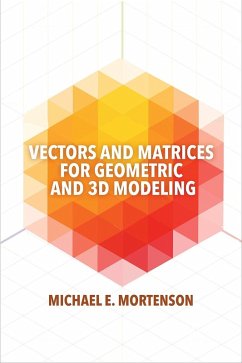
Constructing Dynamic Triangles Together (pre_publication version) (eBook, ePUB)

PAYBACK Punkte
1 °P sammeln!
This volume is a pre-publication version of Constructing Dynamic Triangles Together: the Development of Mathematical Group Cognition, published by Cambridge University Press in 2015. These materials were last revised March 16, 2015, from the final manuscript. This version has not been edited, laid out or paginated by Cambridge University Press. Please do not cite page numbers from this version or quote from it. This version is only for informal use and may not be duplicated. Please refer to the Cambridge University Press version for official usage, citation and pagination. The book investigate...
This volume is a pre-publication version of Constructing Dynamic Triangles Together: the Development of Mathematical Group Cognition, published by Cambridge University Press in 2015. These materials were last revised March 16, 2015, from the final manuscript. This version has not been edited, laid out or paginated by Cambridge University Press. Please do not cite page numbers from this version or quote from it. This version is only for informal use and may not be duplicated. Please refer to the Cambridge University Press version for official usage, citation and pagination. The book investigates the display of mathematical reasoning by the students discussing dependencies within a sequence of dynamic-geometry figures. By examining the network of their mutual chat responses preserved in computer logs coordinated with their geometric actions exhibited in a replayer, it is possible to follow in detail the meaning-making processes of the students and to observe how the team develops its mathematical group cognition by adopting a variety of group practices. The longitudinal data set provides a rich opportunity to observe cognitive development through the interplay of processes and practices identifiable at the individual, small-group and community units of analysis.
Dieser Download kann aus rechtlichen Gründen nur mit Rechnungsadresse in A, B, BG, CY, CZ, D, DK, EW, E, FIN, F, GR, HR, H, IRL, I, LT, L, LR, M, NL, PL, P, R, S, SLO, SK ausgeliefert werden.













